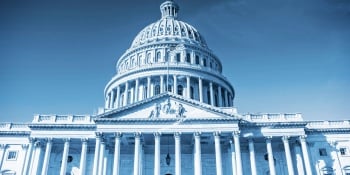Published: 27.06.2023

- A plenary session of the General Assembly of the Council of Europe took place in Strasbourg in recent days.
- During one of the sessions, the General Assembly debated the state of the public health emergency and the need for a holistic approach to health care.
- The Assembly stressed that new threats to public health, perhaps worse than Covid-19, are to be expected. These are to be related to climate change, among other things.
- A resolution was drafted calling on member states to "strengthen the global health architecture" and become more involved in the work of the World Health Organization, including the preparation of a so-called "anti-pandemic treaty.
- The resolution was adopted with 54 votes in favor and eight against.
During the meeting of the General Assembly of the Council of Europe, a debate was held titled. "The state of public health emergency: the need for a holistic approach to multilateralism and health care." The aftermath of the discussion resulted in the adoption of a resolution by members of the Assembly, according to which countries are to urgently learn lessons from previous health crises by strengthening the global health architecture and developing strategies at the national level.
The Parliamentary Assembly recognized the need for a holistic, multilateral effort, bringing together the World Health Organization (WHO), the World Trade Organization (WTO) and others to revise the rules governing the health sector in the provision of essential medicines, vaccines and health care services at the national and international levels, including the diversification of medical supply sources. These rules should ensure that both the public and private sectors in health care anchor their actions in human rights, particularly the right to health, and guarantee equitable access to quality treatment and vaccinations for all.
The parliamentarians further pointed out that "the world has entered a new era of pandemics, in which Covid-19 is seen only as a harbinger of further - and possibly worse - public health emergencies. New threats to public health are expected to be linked to the climate crisis, coupled with declining biodiversity and the consequences of armed conflicts waiting to unfold and likely to hit the world unexpectedly. It is therefore urgent that countries learn from previous health emergencies by strengthening the global health architecture and developing the necessary strategies at the national level to respond quickly to emerging global health threats."
The text adopted stresses that ongoing processes to transform global health governance must be based on the principle of justice and the protection of human rights and fundamental freedoms in public health emergencies, calling on member states to commit to ensuring sustainable financing for WHO and making it independent of voluntary contributions.
- The content of the resolution indicates that the interest in the treaty under preparation and in giving the WHO a major role in the field of global health policy is also viewed positively by members of the General Assembly of the Council of Europe. What's more, the resolution makes recommendations similar in content to the provisions proposed in the latest treaty, including, among other things, a call on developed countries, particularly the US and EU members, to support developing countries by providing them with access to healthcare-related products, technologies and know-how," stresses Weronika Przebierała, director of the Ordo Iuris Center for International Law.
LET'S BLOCK THE WHO TREATY - SIGN THE PETITION

23.05.2025
We are currently engaging with think tanks and political parties across the continent to collaboratively develop a detailed counter-proposal to the centralist, anti-national, and anti-democratic vision of the European Union promoted by the European Parliament and President Macron.

19.05.2025
• The 78th World Health Assembly, the deliberative body of the World Health Organization, begins today in Geneva.

16.05.2025
On 13 May 2025, James Daniel Jordan, Chairman of the Judiciary Committee of the United States House of Representatives, together with four other members of the Committee, addressed a letter to Michael McGrath, European Commissioner for democracy, justice and the rule of law. The letter inquires how the European Union intends to respond to the actions of Donald Tusk’s government.

15.05.2025
• The European Democracy Shield, an instrument designed to guarantee the EU’s resilience against hybrid attacks and external interference, is currently being developed within European Union institutions.